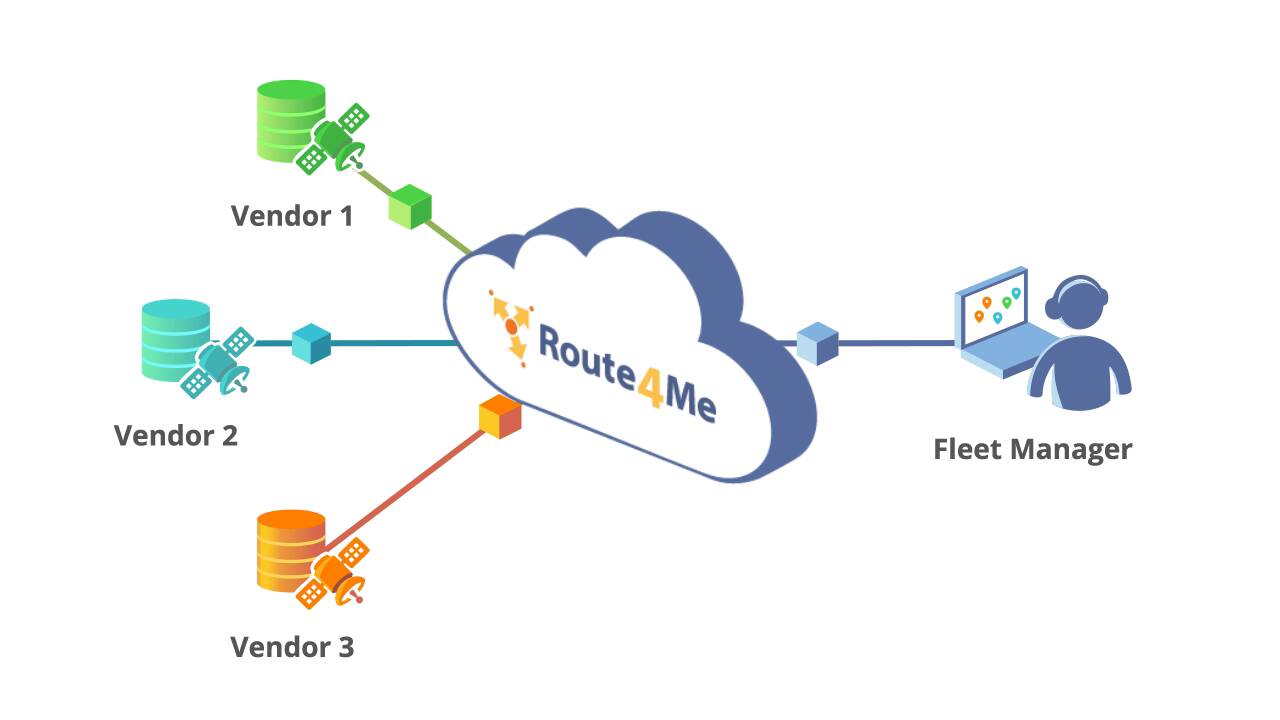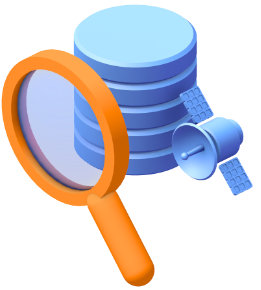

GPS-enabled telematics is used to track, monitor, and analyze vehicles or assets. Telematics systems (such as Geotab, Samsara, Motive, VTS, Azuga, et al.) gather data including vehicle location, speed, driver behavior, engine diagnostics, and ultimately visualize and report on this data within their platforms. These technologies help companies run more efficient businesses with better customer service.
Vehicles and assets are located and tracked using GPS technology. Some telematics vendors have OBD devices that plug directly into a vehicle. These OBD devices collect vehicle diagnostics and vehicle engine data. The captured GPS data is typically transmitted over cellular networks, but sometimes satellite uplinks, to the telematics service provider's servers. Their fleet management software and databases use the captured GPS and telemtry data to create value for business users.

Different telematics companies exist in the global marketplace. Many of them compete with each other directly, while others offer specialized industry solutions in areas such as waste management, oil and gas, snow plowing.
Because the industry is so competitive, integrating, consolidating, and aggregating data from different vendors has never been easy (or possible). That's why we created the first globally integrated telematics platform, where you can find and compare vendors by their capabilities, and then connect with multiple vendors using a self-service system simply by inputting your account credentials.
Route4Me's Telematics Gateway is a fleet management unification and aggregation solution that allows concurrent integration and bi-directional data transmission with vendors, including real-time protocol transformation and normalization into a single database and single pane of glass for monitoring.
All telematics service providers are different. They collect different types of data, store, and present that data in their own proprietary format. This means aggregating data from multiple vendors into a single system usually requires a large programming effort.
Contrary to the legacy approach, of manually programming each integration, the telematics gateway extracts all the relevant data automatically, maps, and unifies various data sources into a single integrated data set. In doing so, all data is normalized so that data can easily be accessed in the same format, which is more efficient and effective for managing and accessing data.
Unrelated tracking service providers are able to offer different quality of GPS data. This data highly depends on location, weather, and time of the day.
In order to provide the best possible data quality, the platform automatically gathers data from a variety of sensors - vehicles, powered and non-powered assets, and people.
The telematics gateway automatically connects and talks to each system in its own language and collects data from all possible sources.
Route4Me also enables near real-time bi-directional data synchronization, including from sensor sources, 3rd party datasets, and your data set.
This ensures that your systems have more complete, up-to-date fully integrated data, without any human intervention.
And you can now view the data you want in a single user interface, such as data originating from two separate Telematics and IoT Platforms.
Furthermore, because Route4Me creates a singular data set from this variety of data sources, it enables you to have more efficient and effective data retention and policies, as well as, backup and storage.
This provides additional data protection - critically important to ensure compliance, enrich your data lake or data warehouse, and even to close complex deals that require an operational analysis.